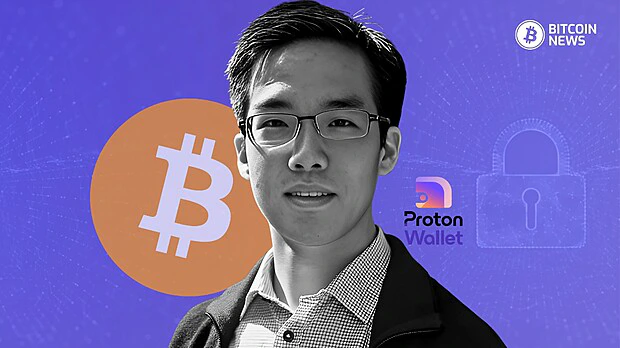Proton, a Swiss company best known for its privacy-focused services like Proton Mail and Proton VPN, has taken a significant step into the Bitcoin world by launching Proton Wallet, a self-custodial Bitcoin wallet.
This new product aims to simplify Bitcoin transactions and enhance security, aligning with Proton’s mission of preserving privacy and online freedom.
Proton Wallet is designed to make Bitcoin transactions as straightforward as sending an email. Users can send and receive bitcoin using email addresses, which is a significant departure from the complex and often error-prone Bitcoin addresses typically used in transactions.
This feature is integrated within the Proton ecosystem, allowing Proton Wallet users to send bitcoin to any email address, whether or not it’s associated with ProtonMail.
Andy Yen, founder and CEO of Proton stated:
“Proton Wallet’s ability to support Bitcoin via email now makes Bitcoin transactions as easy to use as PayPal while preserving the decentralized and non-custodial nature of Bitcoin.”
Yen mentioned that enabling Proton and its community to adopt decentralized payment methods helps protect Proton from the risks associated with traditional financial institutions.
Proton Wallet is a self-custodial wallet, meaning users retain control of their private keys. This is crucial for maintaining the security and privacy of their digital assets.
Unlike centralized exchanges like Coinbase or Binance, which hold assets on behalf of users, Proton Wallet ensures that only the user has access to their funds. Even if Proton were to shut down, users could still access their bitcoin through a recovery phrase.
Proton Wallet also incorporates robust security features, including two-factor authentication and Proton Sentinel, a security program that helps detect and block malicious login attempts.
Proton Sentinel uses advanced machine learning, AI, and human analysis to block malicious login attempts with high accuracy. This protects users’ accounts even if their login credentials have been compromised or accessed by an attacker.
Dingchao Lu, Director of Proton Wallet stated:
“By giving users control of their own encryption keys and their own digital assets, we’re offering financial freedom, improved privacy, and safety to millions of people around the world.”
Lu added that Proton has been accepting bitcoin payments since its beta launch in 2016, which has been beneficial as bitcoin’s value has significantly increased.
Proton’s journey with Bitcoin began in 2014 during its initial crowdfunding campaign, when PayPal temporarily froze Proton’s assets, nearly ending their service before it could fully launch.
When PayPal temporarily froze their funds, the team added a bitcoin donation link, which helped them receive crucial funding. This experience highlighted the benefits of Bitcoin’s decentralized nature and inspired Proton to integrate Bitcoin into its financial reserves.
In regards of the Bitcoin Lightning Network, Lu expressed mixed feelings.
He noted the difficulty of implementing it in a non-custodial way and the unresolved user experience issues with opening channels. However, he remained hopeful, suggesting that Proton could add Lightning support in the future as solutions to these problems are found.
Currently, Proton Wallet is available in early access to users on the Proton Visionary plan, an exclusive plan for early supporters of Proton.
These users can invite up to ten others to join, and there is also a waitlist for those interested in gaining access. Proton plans to roll out the wallet to all users in the future and may add support for other digital currencies based on user feedback.
The Proton Visionary plan, which costs $39.99 per month (or $29.99 per month if paid annually), provides access to premium versions of all Proton products, including Proton Wallet. The wallet is available as a web app and on iOS and Android platforms.
By simplifying the process of sending and receiving bitcoin and providing enhanced security measures, Proton hopes to make Bitcoin more accessible and secure for everyday users.
Proton Wallet is not just about making transactions easier; it’s also about integrating with the broader Proton community, which has over 100 million accounts. The wallet leverages Proton’s existing infrastructure to enhance user experience and security.
Proton has also partnered with licensed third parties to enable users to buy bitcoin in over 150 countries.
Looking ahead, Proton plans to introduce a paid version of the wallet, Proton Wallet Plus, which will include Proton Sentinel protection for users at higher risk of cyberattacks, such as activists, journalists, and executives.
This focus on security and privacy aligns with Proton’s overall mission to reduce dependence on centralized financial institutions.
Proton’s entry into the Bitcoin space is unique because the company is not a traditional digital-asset company.
It has never issued a digital currency, does not trade or speculate in them, and is not an exchange. Instead, Proton is a non-profit organization dedicated to preserving privacy and freedom online.










